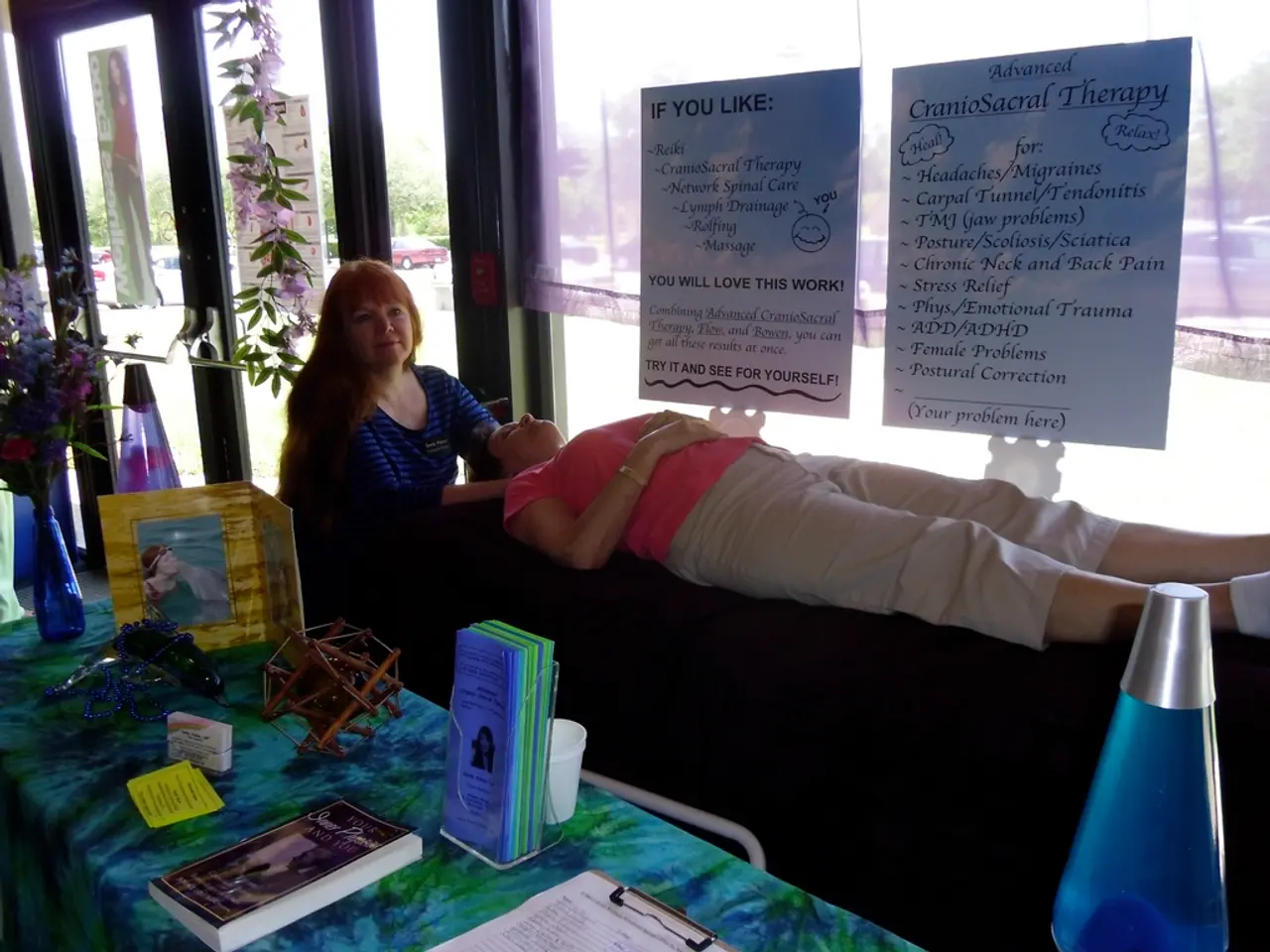Sleep disturbances and psychological disorders: What's their connection?
In the realm of mental health, sleep disturbances, particularly insomnia, play a significant role. This condition, which is the most common sleep disorder, is closely linked to the development and treatment of depression, anxiety disorders, schizophrenia, bipolar disorder, and PTSD.
People with schizophrenia often experience insomnia, a factor that affects their overall quality of life and symptoms. Similarly, those with PTSD frequently have recurring nightmares that replicate or represent their traumatic experiences. In psychiatric disorders such as bipolar disorder, sleep problems can serve as biomarkers and predictors of mood episodes.
From a treatment perspective, addressing insomnia is crucial. Improving sleep quality can alleviate mental health symptoms and reduce relapse risk. For instance, treating insomnia with cognitive behavioral therapy (CBT) in people with depression may lead to a significant reduction in depression scores and relapse.
Certain medications used in depression, such as adjunctive brexpiprazole, have shown benefits not only on mood symptoms but also on sleep disturbances without excessive sedation. However, some antidepressants may worsen insomnia, highlighting the need for individualized treatment strategies that simultaneously target sleep and psychiatric symptoms.
Behavioral interventions and lifestyle changes, such as regular sleep schedules, relaxing pre-bed rituals, and limiting screen time, also support better sleep and emotional well-being.
Here's a summary of the relationship between insomnia and some common mental health conditions:
| Mental Health Condition | Relationship with Insomnia | Treatment / Management Implications | |------------------------|--------------------------------------------------------------|-----------------------------------------------------| | Depression | Insomnia increases risk and worsens depressive symptoms; sleep problems common | Treating insomnia improves depression outcomes; some meds help sleep, others worsen it[2][3] | | Anxiety Disorders | Insomnia is prevalent and raises anxiety severity | Sleep improvement helps emotional regulation[3] | | Schizophrenia | Insomnia common, worsens quality of life and symptoms | Sleep management supports symptom stability[1][5] | | Bipolar Disorder | Sleep disturbances are biomarkers and risk factors for mania | Improving sleep quality reduces mania risk and mitigates symptoms[5] | | PTSD | Insomnia and nightmares frequent, exacerbate distress | Targeted sleep therapy important for symptom relief[1][5] |
Insomnia is both a symptom and a potential driver of worsening mental health in these disorders, making its identification and treatment a vital component of comprehensive psychiatric care[1][3][5].
It's important to note that up to two-thirds of people with social anxiety may experience insomnia. Insomnia is also part of the criteria for diagnosing major depressive disorder and occurs in more than 90% of people with clinical depression. Short-term insomnia that results from lifestyle factors such as travel or stress may resolve with improved sleep hygiene.
In seven out of ten people who complete CBT-I treatment, sleep improves. In people who experience nightmares, CBT-I may also help reduce the number of nightmares and the level of distress. Insomnia is associated with many anxiety disorders, such as obsessive-compulsive disorder, panic disorder, phobias, and social anxiety disorder.
In conclusion, understanding the link between insomnia and mental health is essential for effective treatment and management of these conditions. If insomnia lasts longer than three weeks and does not improve with changes to sleep hygiene, it's advisable to seek professional help to find the cause and appropriate treatment.
- Sleep disturbances, particularly insomnia, are significant in the context of mental health and are often linked to the development and treatment of various disorders, including PTSD, depression, anxiety disorders, schizophrenia, and bipolar disorder.
- In the realm of health-and-wellness, addressing insomnia can alleviate mental health symptoms and reduce relapse risk, with treatments like cognitive behavioral therapy (CBT) showing promise.
- Science has demonstrated that certain medications used in treating depression, such as adjunctive brexpiprazole, have benefits not only on mood symptoms but also on sleep disturbances, without excessive sedation.
- Mental health, including conditions like PTSD, can be negatively impacted by recurring nightmares during sleep, highlighting the importance of sleep management for symptom relief.
- From a health perspective, it's crucial to recognize that up to two-thirds of people with social anxiety may experience insomnia, making its identification and treatment a vital component of holistic psychiatric care.




